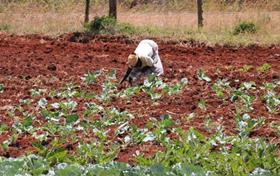
For over 10 years, Coleacp, the Brussels-based association assisting farmers in African, Caribbean and Pacific (ACP) countries, has been lobbying the EU to tackle unfair trading practices in agricultural supply chains.
Last week, on 10 April, the EU Unfair Trading Practices Directive, described by Coleacp as “groundbreaking”, was formally adopted.
“For the first time there will be a shared minimum standard for fair trading practices enforced throughout Europe,” the association stated. “This will provide regulatory certainty to buyers and confidence to suppliers – even those based outside the EU – that they will be able to access protection regardless of where their European buyer is based.”
Since supply chains include businesses from small-scale family farms to huge multinational enterprises, smaller suppliers are vulnerable to unfair treatment, including last-minute cancellations and late payments. The impact on small businesses’ costs can put food safety and workers’ conditions at risk, Coleacp warns.
The new Directive now needs to be transposed into the law of each EU Member State within the next two years, with each having name an enforcement to investigate suspected unfair trading practices and impose penalties.
Some unfair trading practices, including buying and selling below cost, using two-stage auctions to drive down prices or delisting suppliers without genuine commercial reasons, are not currently banned, but left to Member States to consider adding to their national law.
Farmers in ACP countries are especially vulnerable to unfair trading practices, since they are less likely to have links with alternative markets, and may have less access to legal support, union or the information needed to challenge the unfair practices of large European customers.
Crucially for ACP suppliers, the new Directive protects those who are based outside the EU but sell to an EU-based buyer. Its success, however, will rest on the confidence of suppliers to come forward.
“Many suppliers – especially ACP suppliers – may not have the time, training, support or language to understand the implications of new EU laws,” Coleacp explained. “It is crucial that Member States work with trade attachés, producer associations and international NGOs to provide vulnerable producers with legal assistance, including providing resources where necessary. Coleacp’s Fit For Market programme can assist ACP fruit and vegetable producers to understand the benefits they could gain from the new Directive and to access their legal rights.”
Also important is that complaints are kept confidential and anonymous, Coleacp stated, reducing the fear of commercial retribution. “A hard-won feature of the Directive is that it allows other orgnisations (such as NGOs, producer organisations and unions) to make complaints on behalf of suppliers, making it more likely that complaints will be made to highlight illegal practices,” the association revealed.



